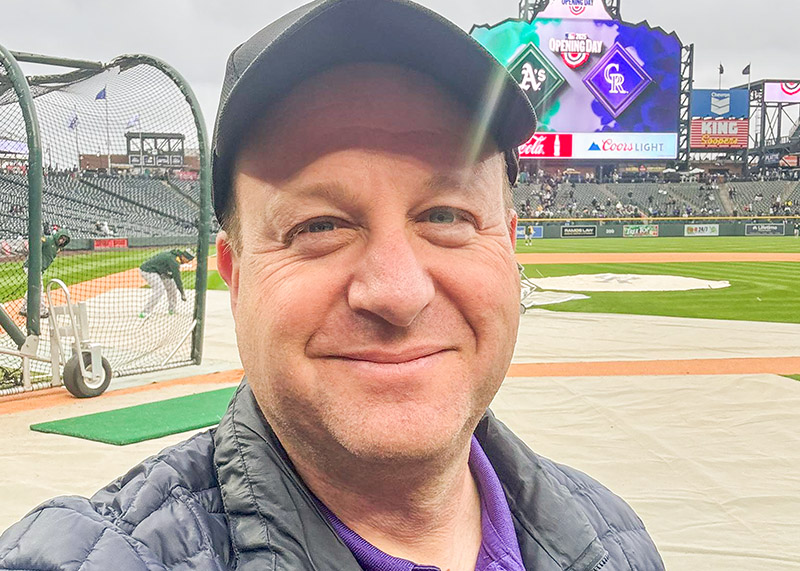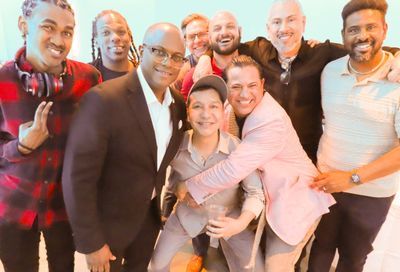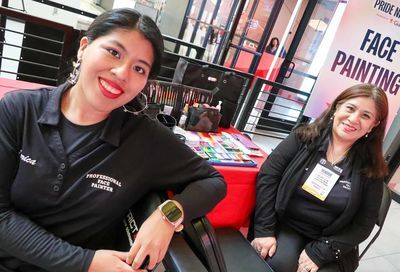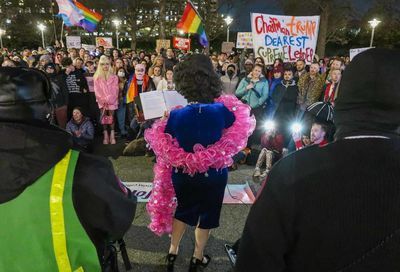Arizona Supreme Court says calligraphers have a right to turn away same-sex couples
Court finds that business owners' "custom" invitations and artwork are a form of protected speech

The Arizona Supreme Court has effectively undermined the city of Phoenix’s nondiscrimination ordinance by ruling that the owners of a stationery and calligraphy business can refuse to create custom-made invitations for same-sex weddings.
In a 4-3 decision, the court decided that Joanna Duka and Breanna Koski, the owners of Brush & Nib Studio, have a First Amendment right to express their religious beliefs by refusing to make products for same-sex weddings.
Duka and Koski had preemptively sued the city of Phoenix, alleging that the ordinance’s protections based on sexual orientation and gender identity infringed on their rights by forcing them to make “custom” invitations or other products that celebrate or acknowledge same-sex relationships.
“The enduring strength of the First Amendment is that it allows people to speak their minds and express their beliefs without government interference. But here, the City effectively cuts off Plaintiffs’ right to express their beliefs about same-sex marriage by telling them what they can and cannot say,” Justice Andrew Gould wrote for the majority.
But the court also declined to issue a sweeping exemption for all businesses — including Brush & Nib — that would have allowed them to turn away customers simply based on their sexual orientation.
“Although this case is about freedom of speech and religion, it suits the preferred analysis of our dissenting colleagues to reframe it as one involving discriminatory conduct based on a customer’s sexual orientation. This mischaracterization reflects neither Plaintiffs’ position nor our holding,” Gould wrote. “Literally none of the examples of invidious, status-based discrimination the dissent invokes…would even be remotely permitted under our holding today. Plaintiffs must, and they do, serve all customers regardless of their sexual orientation. However, by focusing solely on the anti-discrimination purpose of the Ordinance, the dissent engages in a one-sided analysis that effectively deprives Plaintiffs of their fundamental right to express their beliefs.
“The City also argues that because Plaintiffs’ refusal affects only same-sex couples, their refusal is essentially a proxy for discrimination based on sexual orientation. We disagree,” Gould continued. “The fact that Plaintiffs’ message based refusal primarily impacts customers with certain sexual orientations does not deprive Plaintiffs of First Amendment protection.”
The ruling leaves Phoenix’s nondiscrimination ordinance — and many others across the country — in limbo, at least with respect to whether such laws can be enforced.
Under a strict reading of the court’s decision, it would appear that any business owner who expresses religious objections to same-sex marriage may refuse to provide “custom” goods or services to same-sex couples on the basis that their artwork or craftsmanship constitutes a form of speech implicitly endorsing the celebration in question.
However, that same business could seemingly not claim that same exemption in justifying a refusal to provide or sell generic or mass-produced goods or services to an LGBTQ-identifying individual, or for a non-marriage-related event, at least according to the logic used by the majority in reaching its decision.
Jonathan Scruggs, senior counsel for Alliance Defending Freedom, which represents Duka and Koski, hailed the court’s decision.
“The government shouldn’t threaten artists with jail time and fines to force them to create custom artwork, such as wedding invitations, expressing messages that violate their beliefs, and that’s what the court has affirmed today,” Scruggs said in a statement. “Joanna and Breanna work with all people; they just don’t promote all messages. They, like all creative professionals, should be free to create art consistent with their convictions without the threat of government punishment. Instead, government must protect the freedom of artists to choose which messages to express through their own creations. The court was right to find that protections for free speech and religion protect the freedom of creative professionals to choose for themselves what messages to express through their custom artwork.”

But Lambda Legal, which filed amicus briefs urging the court to uphold the city’s nondiscrimination protections, blasted the court’s decision as “troubling” and “misguided.”
“Today, addressing a narrow factual context, a closely divided Arizona Supreme Court issued a troubling decision that grants business owners a limited license to discriminate when creating custom-designed, wedding-related art work,” Jennifer Pizer, senior counsel and law and policy director at Lambda Legal, said in a statement. “The Court misguidedly has concluded that free speech protections allow businesses to express anti-gay religious views by denying particular custom-design services to customers because of who they are. This ruling is dramatically at odds with decisions by courts across the country that have instead refused to create a religious license for businesses to exempt themselves from civil rights laws, and to pick and choose their customers according to their own religious criteria.
“Two years ago, we argued in our friend-of-the-court brief to the U.S. Supreme Court in Masterpiece Cakeshop v. Colorado Civil Rights Commission that these cases aren’t really about cake or stationary or flowers: they’re about whether LGBT people and their families are equal members of society, or instead are subject to humiliating denials of service in countless places, from fertility clinic to funeral home, and everywhere in between,” Pizer added.
“The Arizona Supreme Court majority strains to create today’s limited exception to the U.S. Supreme Court’s admonition in that case, which firmly rejected the notion that religious beliefs excuse marketplace discrimination, citing a case from more than half a century ago,” Pizer said, referring the 1968 Supreme Court case Newman v. Piggie Park, in which the owner of a barbecue restaurant cited his religious beliefs as justification for refusing service to African-American customers.
“That 1968 case rejected as ‘patently frivolous’ a business owner’s claim of a right to discriminate against customers based on religious beliefs,” Pizer continued. “Though narrow, today’s decision alarmingly cracks open the door to religion and free speech protections being misused as weapons against LGBTQ people and their families and religious minorities, not to mention the dire implications for everyone seeking reproductive health services and many others. Luckily, it is unlikely to be the last word on this subject.”
Read more:
Mike Pence believes that being gay is “a choice” and “learned behavior”
Maryland couple sues State Department for refusing to recognize daughter’s U.S. citizenship
Support Metro Weekly’s Journalism
These are challenging times for news organizations. And yet it’s crucial we stay active and provide vital resources and information to both our local readers and the world. So won’t you please take a moment and consider supporting Metro Weekly with a membership? For as little as $5 a month, you can help ensure Metro Weekly magazine and MetroWeekly.com remain free, viable resources as we provide the best, most diverse, culturally-resonant LGBTQ coverage in both the D.C. region and around the world. Memberships come with exclusive perks and discounts, your own personal digital delivery of each week’s magazine (and an archive), access to our Member's Lounge when it launches this fall, and exclusive members-only items like Metro Weekly Membership Mugs and Tote Bags! Check out all our membership levels here and please join us today!
























You must be logged in to post a comment.